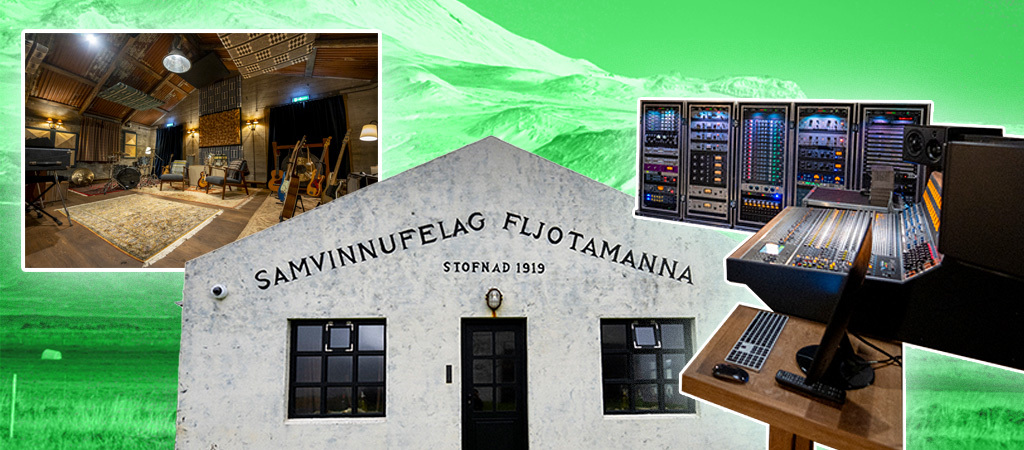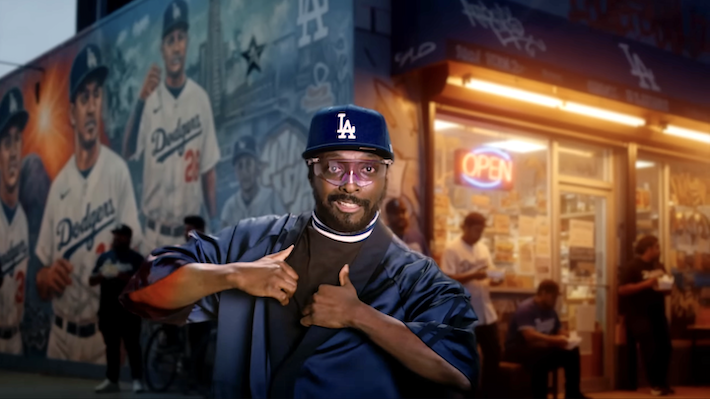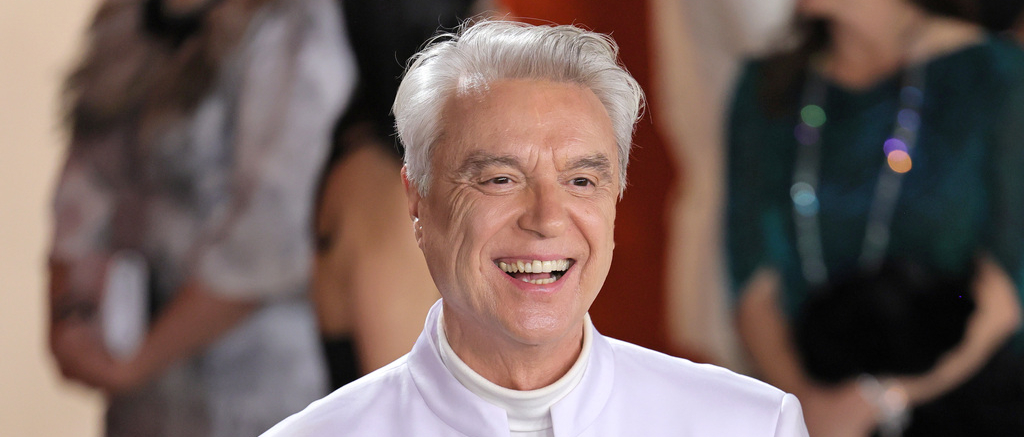A couple years back, FX aired a sturdy, engaging miniseries from the creators of The OA, titled A Murder At The End Of The World. The series was notable for a number of reasons: introducing many to the charms of Harris Dickinson and Emma Corrin, helping launch legend Joan Chen’s comeback, providing a poignant spin on true crime whodunits with a peppering of ecological and technological horrors. But maybe most notable was the location that the bulk of the story is set. The titular “end of the world,” if you will.
While that framing makes it sound like the show takes place somewhere mythical, the actual location doesn’t feel too far off from that sentiment. We’re talking about the Troll Peninsula in Northern Iceland, where the Arctic Sea collides with largely unsettled terrain that’s as remote as it is visually spectacular. In the show, this is the spot where a billionaire holds an exclusive retreat. And visiting the area, which in real life is home to Flóki Studios and its associated hotel Deplar Farm, it’s easy to see where the show received its inspiration (scenes were even shot at the hotel property, though a fair amount of CGI was applied to transform the luxurious lodge atmosphere into a high-tech AI-operated fortress).
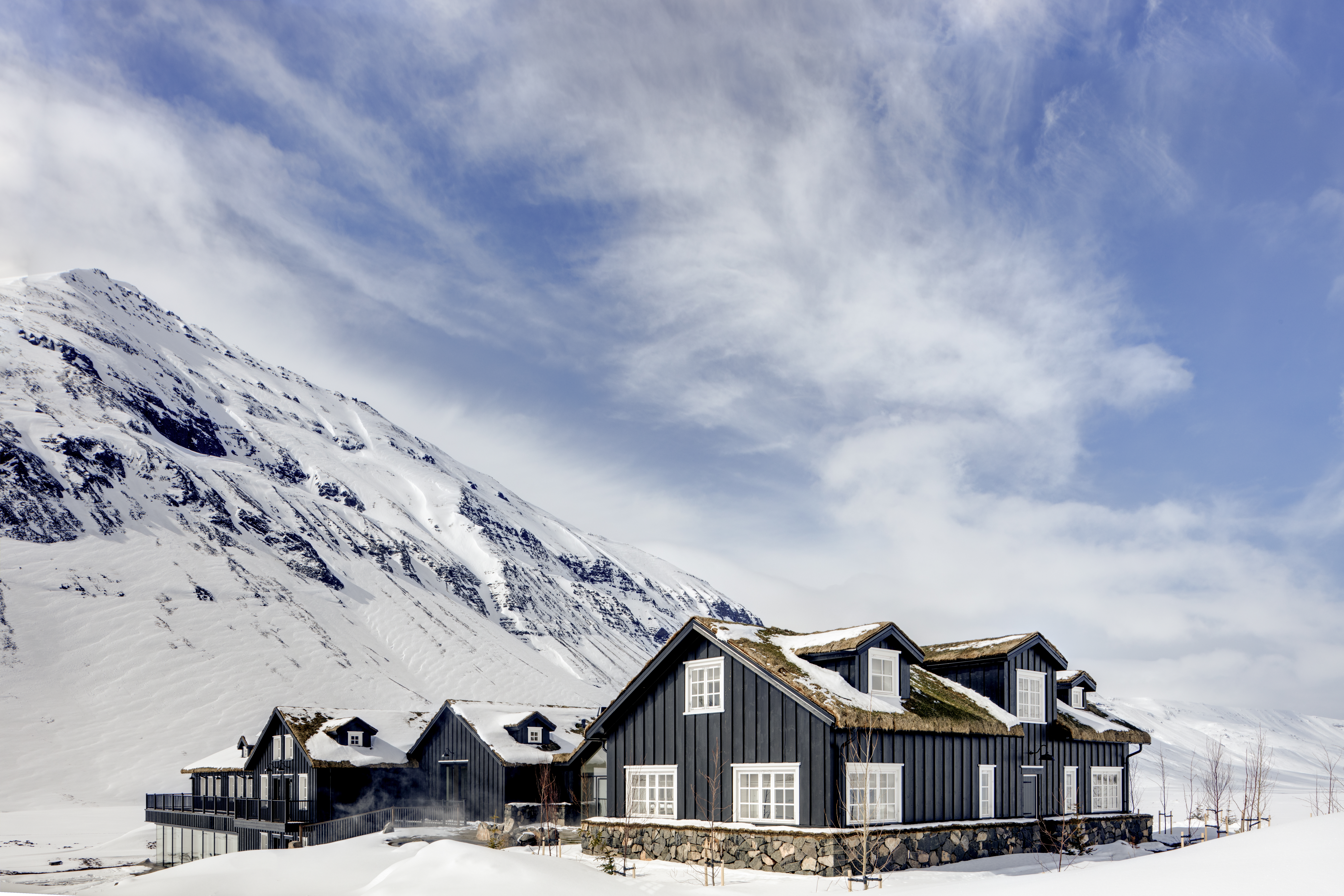
But the reality is that the “end of the world” experience isn’t limited to the 1 percent, and Flóki Studios is making it their mission to let recording artists know that access to their gorgeous, secluded studio is available to artists of all different backgrounds and financial statuses.
“We want to be able to have it be accessible for the emerging artists that don’t have [a massive] budget,” Wade Koeman, Flóki Studios Director, says over FaceTime. “It’s not as cost-prohibitive as I think people might think.”
Thanks to a rebate system — simply called Record In Iceland — artists can apply for a 25-percent return on recording costs incurred in Iceland. This can essentially negate travel costs, and from there, Flóki is determined to keep options affordable for both nearby lodging (they operate an Airbnb house that bands can stay in) and the actual studio costs (Koeman notes that while it will always be cheaper to record in your neighbor’s basement, the rates are in line with studios in major markets).
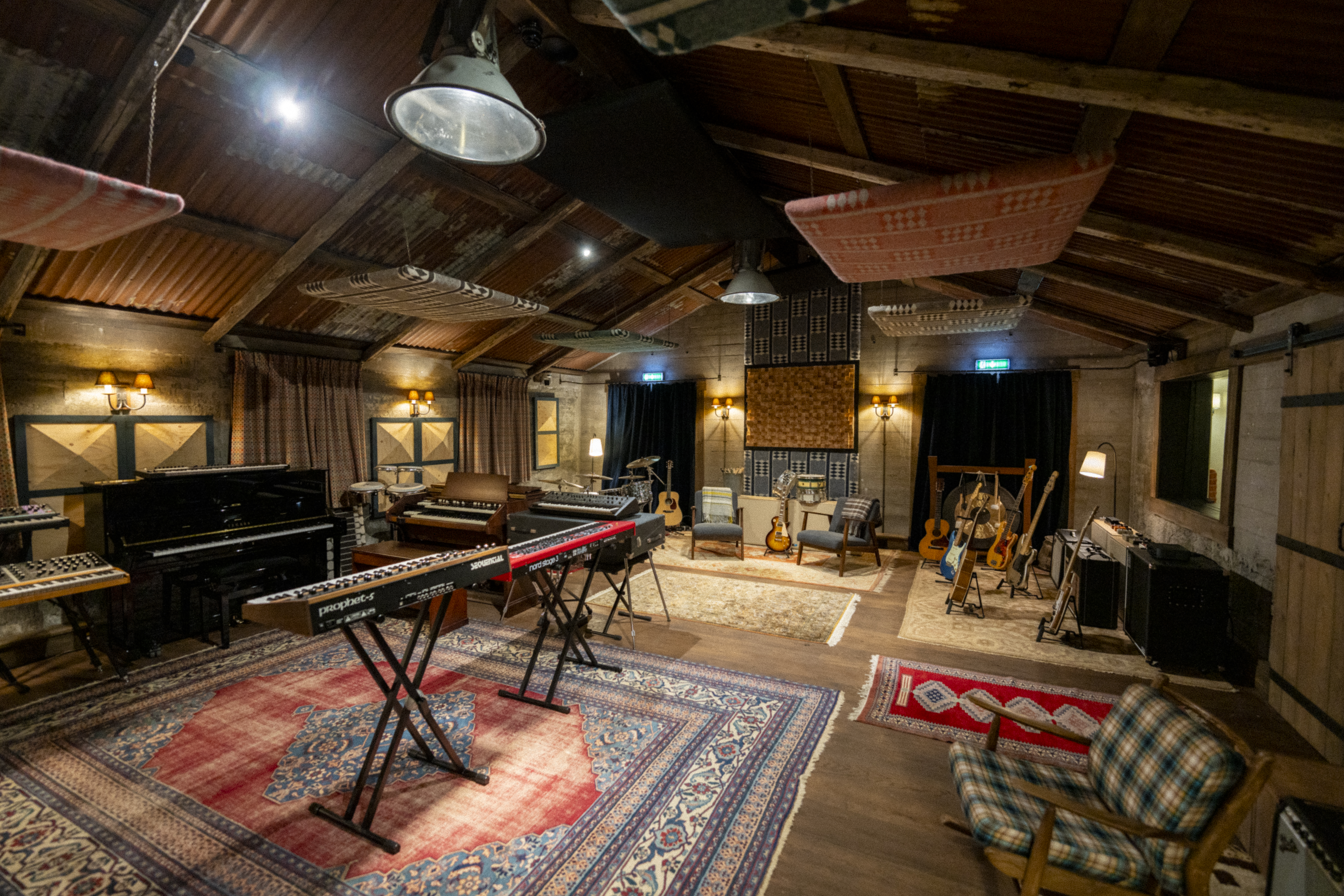
And for the more established artist used to high-end accommodations, Deplar Farm is just a couple miles up the road from an all-inclusive stay at a hotel that was recently named to Condé Nast Traveler’s Gold List as one of the best hotels in the world. From Viking saunas and outdoor hot tubs with swim-up bars to sensory deprivation chambers and wellness treatments, it’s easy to imagine an artist used to a certain lifestyle finding everything they need on site. You can also get whisked off for Arctic surfing, whale watching, or fishing if you need a moment of inspiration.
So with the “how” essentially solved for artists of all levels, the biggest question remaining is “why?” Why pack up and leave the comforts of home for an entirely new setting, and why choose Flóki? “You can record anywhere now,” Koeman notes, and it’s true that with modern laptops and software, recording studios can be literally anywhere with a power outlet.
“I think some people, some artists, really excel and get into this place of creativity when all the distractions are gone,” Koeman continues. “And that’s the idea of Flóki — you’re in the middle of nowhere in a place where, most of the time, you’ve never been. You’re just in this whole new environment and it’s beautiful and peaceful, yet it can be blizzarding and chaotic. It’s nature.”
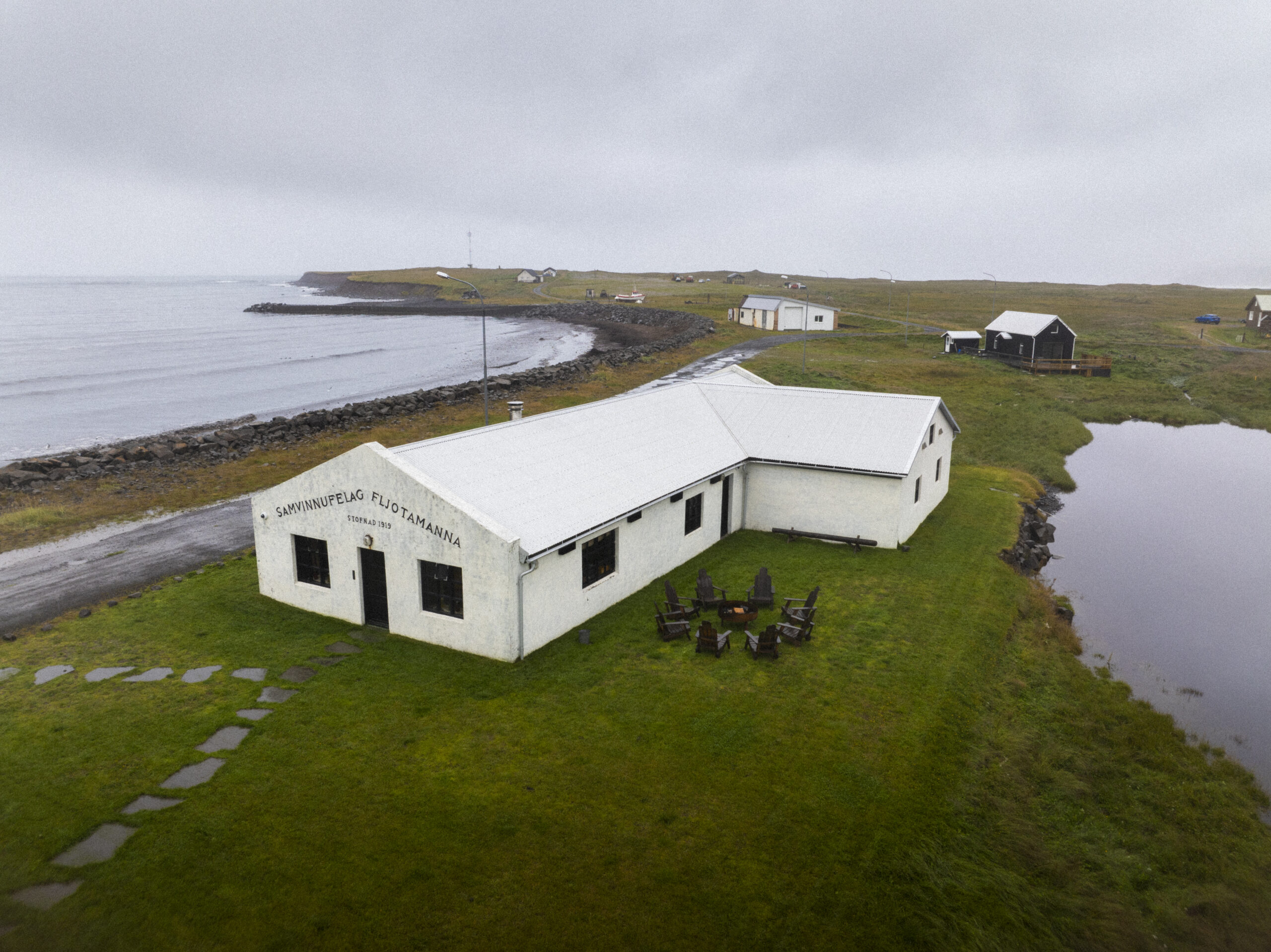
“When you’re out there, there’s nothing else there,” he continues. “So I think a lot of times with sessions — and this can happen to any artist — you’re in a city and you’re at a studio, and there are just so many distractions that can go into that, from maybe there’s traffic on the way there, or maybe you had a bad experience in line getting coffee and that changed your head space a little bit. People are coming by the studio to say, ‘What’s up?’ Or, ‘I’ve got to go meet so-and-so for dinner because they’re in town for a day,’ or whatever. None of that can happen at Flóki.”
There are so many stories of albums coming from periods of isolation, whether it is Bon Iver forging his debut masterpiece in a cabin or Paul McCartney taking inspirational trips post-Beatles to lay down his first solo material. Some artists, from Bruce Springsteen to Grimes, isolated themselves in their own homes to lock in on their future classics. But in the modern world, it’s harder and harder to get away from the buzzing of the phone, the action of the street outside, the endless discourse. Flóki still has phone service, sure, but it’s far enough away that no one would be surprised if you totally detoxed from conventional living.
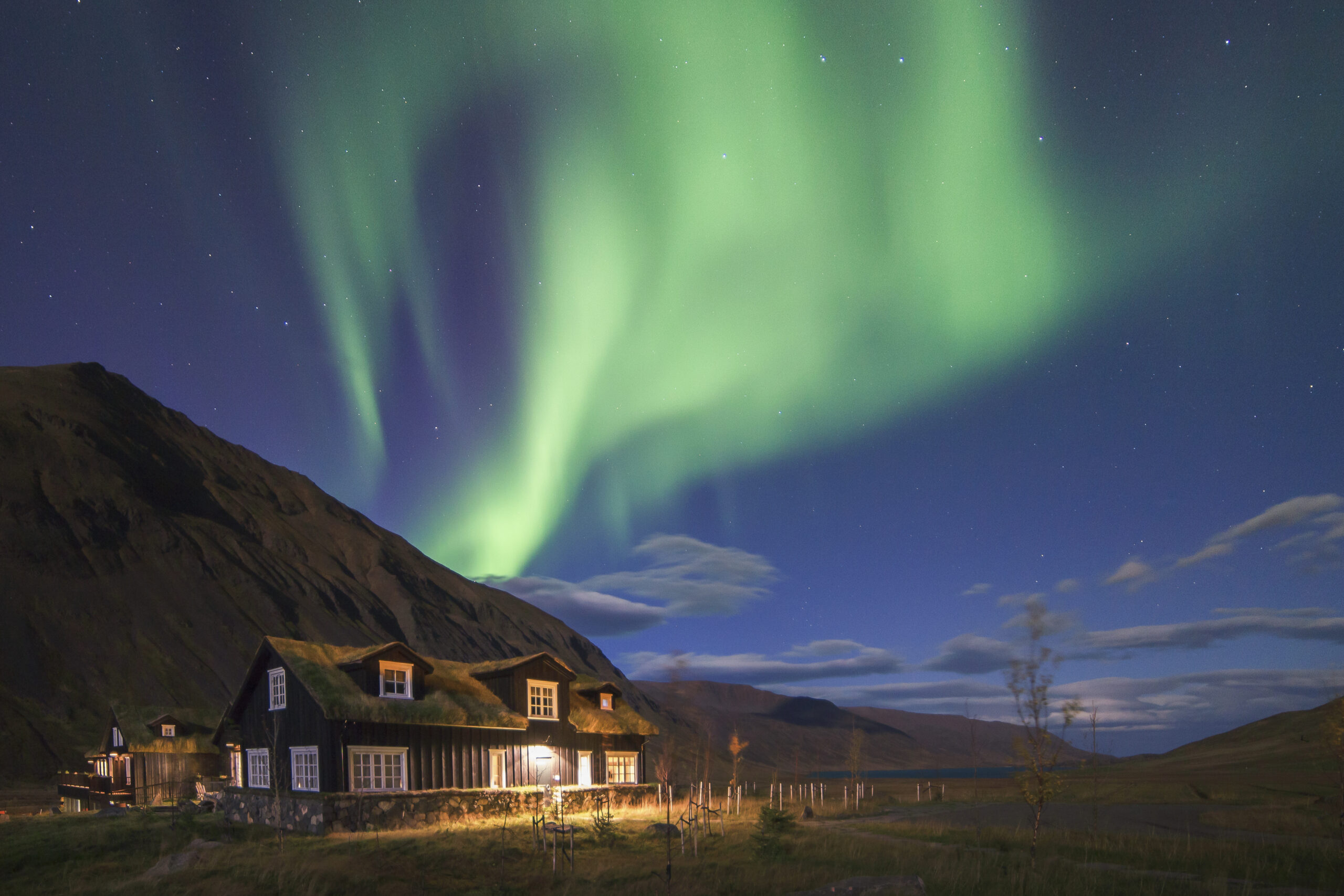
“I think Flóki is a place to reset and just look at [your music] with fresh eyes,” Jay Sweet, Flóki’s Music Ambassador notable for his roles as the producer of Newport Folk and Jazz Festivals, says. “I have this immense feeling of gratitude when I’m there because even when I’m there, it’s a reset for me to fall back in love with the very premise of why we as humans create music. It’s a very primal place and I think when anybody can be out there and feel that, it reignites the fire. It reignites the fire inside to be like… I call it the ‘little guy, big sky’ place. It makes you feel very small and insignificant, and not in a bad way. It makes you feel very insignificant that [with] your worries and troubles that you feel, you’re the main character of your own story. You go there and you realize, ‘Nope, I’m not the main character.’”
One other thing Flóki provides is a removal of the choices that complicate day-to-day life. When David Lynch died recently, among the numerous charming, inspiring, and humanizing stories that flooded social media was that he’d eat the same lunch daily: tuna, feta cheese, tomatoes, and olive oil. The idea was that by eliminating the need to think about what he was going to eat, he gave his mind more space for creativity. Flóki can work similarly. Sure, you can choose between a hike or swim, but you can also cut out all the unnecessary decisions that make up a typical city day. Chefs prepare food according to your likes or dislikes, transportation is arranged, and if you need an activity for inspiration, you have the coolest things in the world at your fingertips.
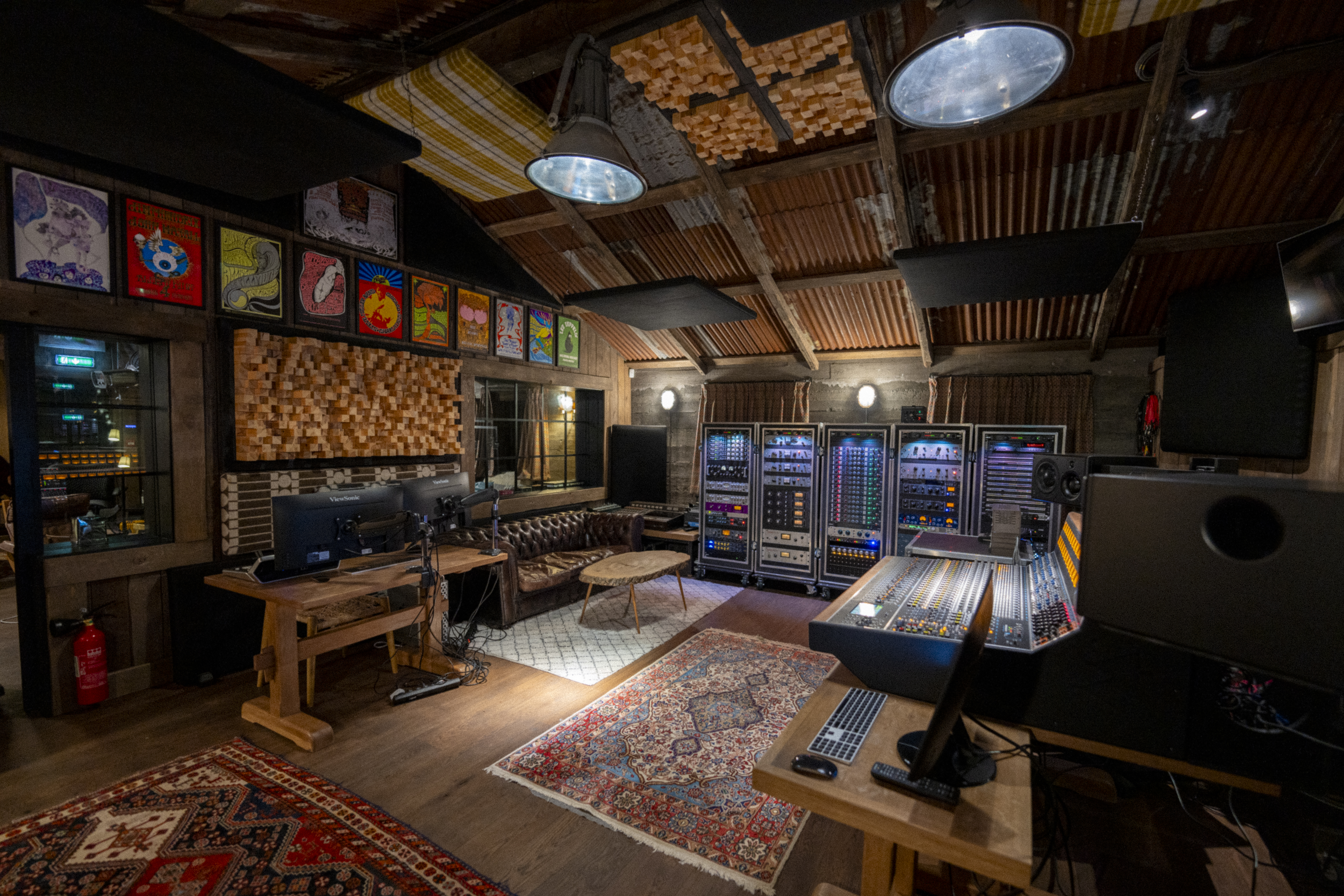
And while the studio has been operating for years now, it still feels a bit untapped in terms of its potential. Brian Miller from Guster has recorded there, as has Wesley Schultz of The Lumineers and George Porter Jr. from The Meters. But the studio is still looking for their own classic to put Flóki in the same breath as the iconic recording spaces around the world. At some point, it will be in that conversation, and for now, it’s just awaiting that artist who wants to be the one to kickstart that legacy.
“The difficulty is finding artists that are willing to break out of the easy option,” Sweet says. “Sometimes the hardest thing is to find an artist who has that sense, that kind of new sense or revived sense of what it was like when they did their first tour, or when they finally went into a tour bus. That sense of wonderment and youthful energy about it. I think that’s the hard thing because it’s like, ‘Well, we’ve recorded our last four albums in this one place, so we know it.’ But I don’t know, man: If it’s the same producer sitting in the same chair in the same studio and this is your fourth album, are you doing it out of tradition or are you doing it out of sloth?”
Koeman agrees. “We’re going to get that word out. I think it’s happening and it’s something that, in my view, is like an organic way of that growing to where it’s got this reputation because of the people that have come there. It’s something they really want to do. To me, that’s really important, having that kind of genuine organic love of this place. And it’s starting to spread through to the artist communities. They’re like, ‘Man, if you can, go to Flóki, because it was incredible.’ That’s definitely the goal, and I think that’s the most powerful thing that can happen.”
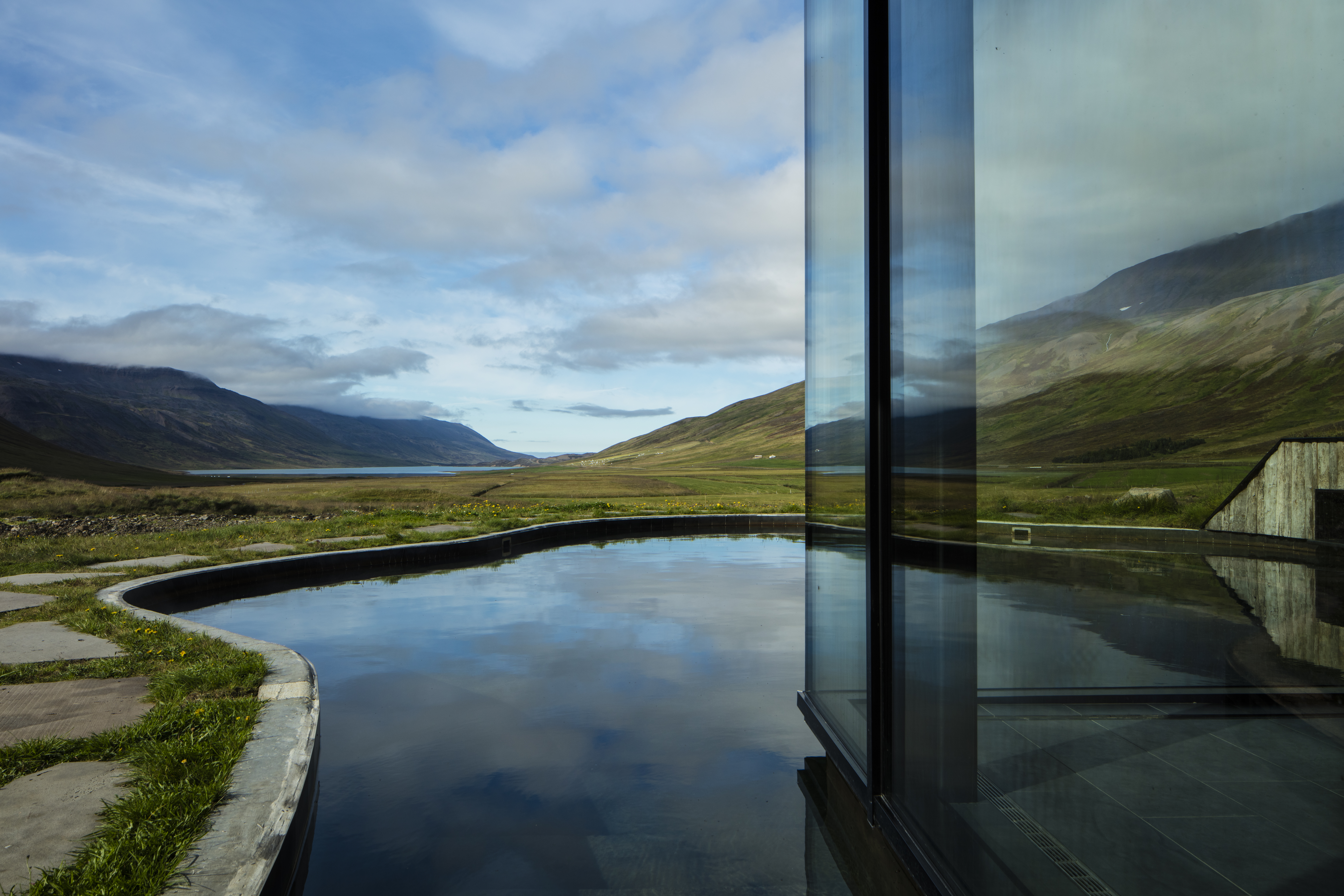
As a non-musician visiting the space, it was hard not to be inspired. Sure, a few straight days of snow kept the Northern Lights obscured, but I rode a horse, saw a waterfall, walked the shores of the Arctic Sea, and ate food that I’ll think about for a long time. Knowing I was in a place that so few would ever visit was inspiration on its own, saying yes to the possibility of leaving the familiar and comfortable behind, and letting the mind be engulfed by the peace and brutality that pushes and pulls in nature. I didn’t leave wanting to record an album, but I did want to hear the music from those wanting to experience something similar. You know, music from the end of the world.
Uproxx was hosted for this story by Flóki Studios. They did not review or approve this story. You can learn more about the Uproxx Press Trip policy here.
For more information on Flóki Studios, visit their website.
For more information on Deplar Farm, visit their website.
